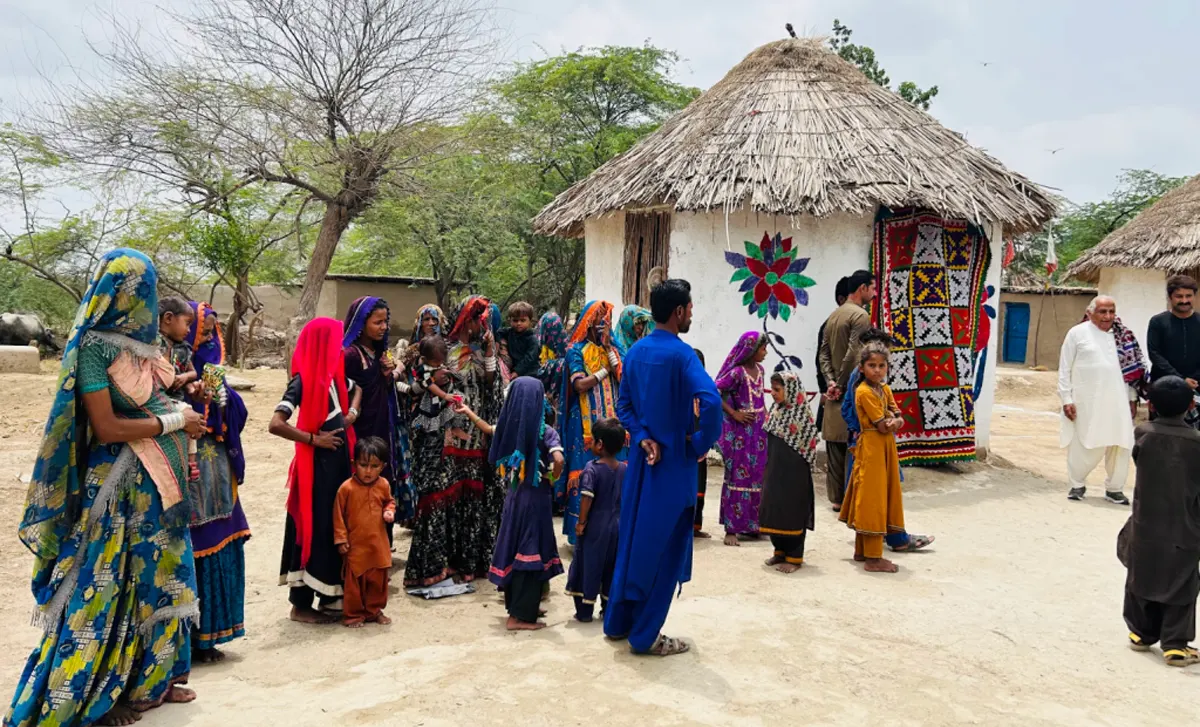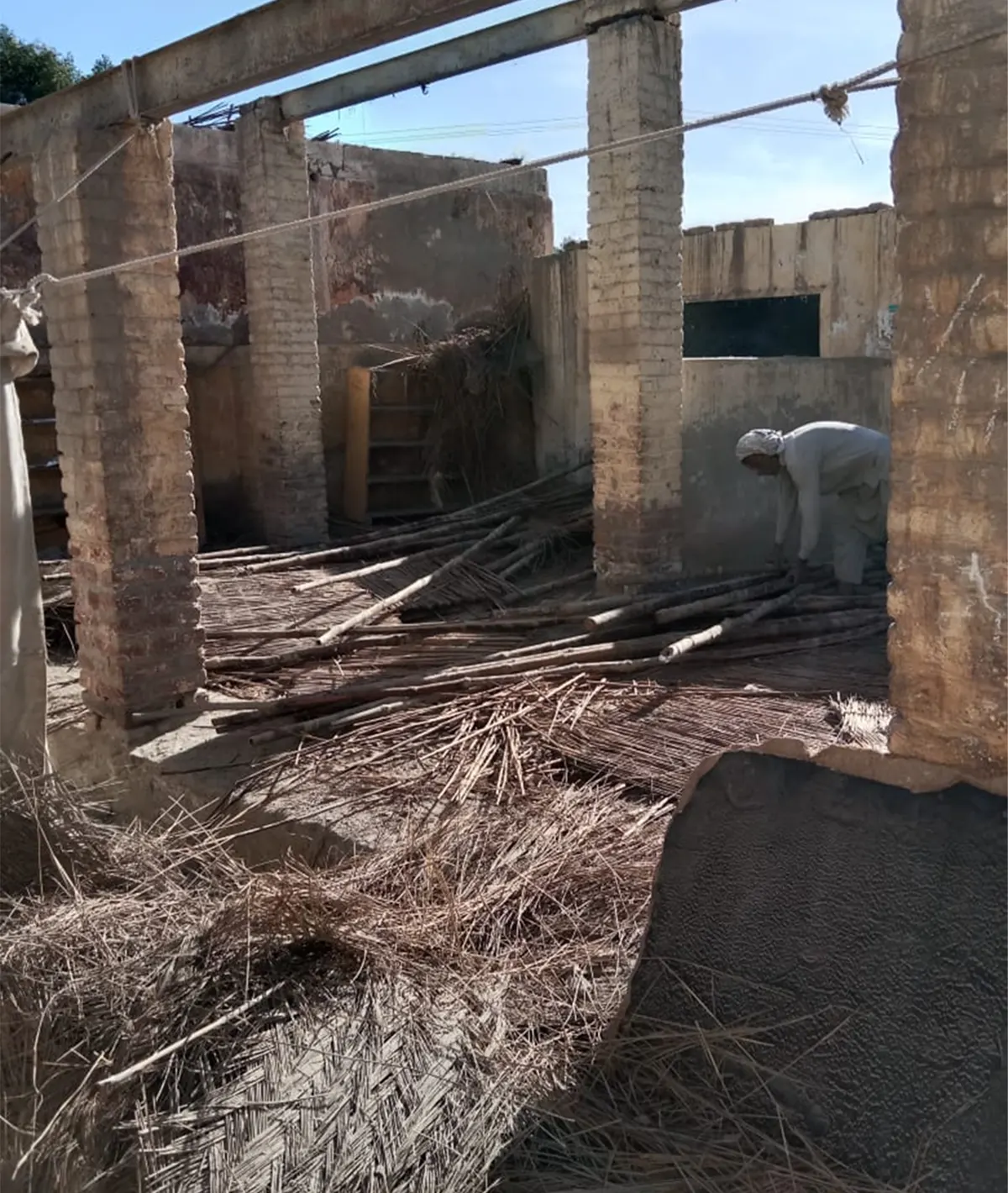Munir Mashooqullah Interview
This spring I had the privilege of interviewing global entrepreneur and environmental visionary Mr. Munir Mashooqullah. He is the founder of M5 Groupe, one of the 10 largest apparel global supply chain companies and is focused on using affordable sustainable materials in the apparel and textile supply chain.
Mr. Mashooqullah greeted me at the entrance of his gorgeous white washed home in Karachi, and I got to enjoy a beautiful view of the city while we spoke about sustainability, changing minds, and planning for a greener future.
Ammad Zuberi (AZ): So what inspired you to focus on making supply chains more sustainable?
Munir Mashooqullah (MM): I came into sustainability by default, it was simply the next step in my business. I remember being on vacation in Spain a while back and saw a plant for the company Schultz shutting down. I inquired into what the plant was doing, and found out that they were reusing material making it into fiber that could then be used in textiles.
AZ: So an accidental encounter with a factory that was closing down put you on this path?
MM: At the time, no one labeled or even thought of the business as sustainable, no one even saw the opportunity that recycling materials produce, cutting costs and improving business, and I saw the potential. I began implementing similar sorts of ideas into my apparel business, and simply branded my work differently, calling it sustainable. Which brought awareness to how beneficial the work was for the environment, addressing the carbon footprint, and how much money it can save for businesses by not producing large amounts of waste that is simply then taken to landfills, recycling materials cuts costs. Companies such as Pepsi have already begun to understand that.
AZ: What are your sustainable business practices?
MM: We basically split it into two spaces, I call them the PRESSTAR and circularity spaces. In the circularity space we aim to close the loop in a system of inputs and outputs. If you look at the recycling sign for example, you can see the loop, every input has an output, the waste is then recycled and put back in again, and so on. Which as I said earlier is good for the companies. I called this initiative Cyclo, and the profits I have made by using the circularity space in my business has allowed me to go ahead and acquire more companies working in sustainability, and implement the initiative.
AZ: Can you give me an example of a useful acquisition?
MM: For example, in one project in Canada we worked with this cutting edge technology ALT TEX to convert food waste into bacteria which is then used to make fiber that can be used in clothes, finding a way to reuse food waste which is found in abundance, closing the loop. The PRESSTAR space on the other hand is meant to foster accountability and traceability. You see all these companies making these outlandish carbon neutrality pledges when they don’t have a clue how to get there.
AZ: Speaking of outlandish claims, how is a consumer meant to know really how green a company is?
MM: In the PRESSTAR space I hope for there to be some sort of a blockchain system where materials can be tracked, so that it will be possible to quantify these crazy climate pledges and their progress. By creating all this new terminology I feel that a difference is being made, the words are piquing interest so that people learn and become aware of the sustainable initiatives.
AZ: What is the biggest challenge you are currently facing in your sustainable business?
MM: Simply the issue of quantifying climate losses. A measurement for the amount of money a corporation is set to lose because of climate change doesn’t exist. The lack of tangible figures allows people to live under the delusion that climate change is not an issue for today, that it is not having an effect, while the effects are already being seen and felt at present, and are going to affect our future generations even more. The lack of urgency makes it difficult for many to get on board with the sustainable initiatives.
AZ: Has working and living in Pakistan, a country where climate resources are squandered, and the effects of climate change really being felt brought a sense of urgency to your work?
MM: Absolutely, as a privileged person with many resources, I am shocked by the lack of concern the elite in this country show. Theburden of responsibility is all messed up. The apathy of the rich towards climate change and other issues across the world, where philanthropy is simply seen as how they can contribute to the problem really bothers me. There is so much more they can do.
AZ: How do you think rich people could behave differently?
MM: To begin they should treat their help and employees as intelligent deserving people. Instead of housing their staff in poorly built, poorly ventilated living spaces, with basic hygiene and 18th century technology they should show them how to live better. Instead of having my staff wash clothes by hand (which is widely done in Karachi), I have taught them how to use washing machines which save them time and save water. The elite should invest in educating lower income households on how to live more efficiently and well instead of building beautiful energy inefficient homes for themselves and continuing to act like medieval landlords towards their dependents and domestic help.
Instead of modeling consumption, rich people can model how to live sustainably.
AZ: Do you think changing the way homes are run will make the difference?
MM: It is one of many ways in which my generation needs to change. There is also the question of investing in sustainable businesses. When I first started Cyclo we lost money but it is the right thing to do and eventually the present will catch up with what the future needs so we have to start investing in the right business practices even if they are not immediately profitable.
At the end of the interview I got a tour of the solar panels that provide clean electricity that powers Mr. Mashooqullah’s home and I was really impressed with the thoughtful construction of his home and the living spaces of his domestic help. I understood how important it is to teach people how to live sustainably in the grand scheme of fighting climate change. People cannot improve if they do not know what better looks and feels like. I walked out feeling encouraged that there are entrepreneurs like Mr. Mashooqullah, who are paving the way for real sustainable change that will not only benefit the environment but also people. Every little step matters and caring about the less privileged is critical if we want everyone to live in balance with nature.
Projects
Hello I’m Ammad Zuberi, I’m sure you’ve heard of the devastating
On my trip to Pakistan this summer, I had the amazing opportunity to go and survey the sustainable village project that I had raised funds for in 2022 after deadly floods dislocated 33 million people in Pakistan.
On my trip to Pakistan this summer, I had the amazing opportunity to go and survey the sustainable village project that I had raised funds for in 2022 after deadly floods dislocated 33 million people in Pakistan.




